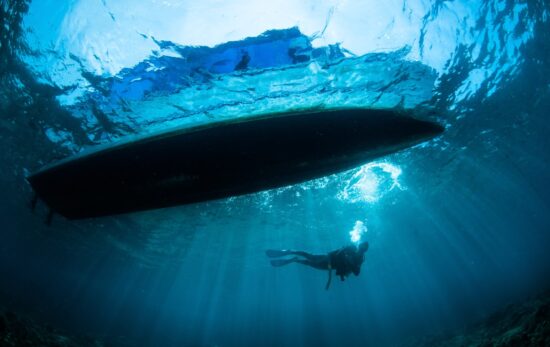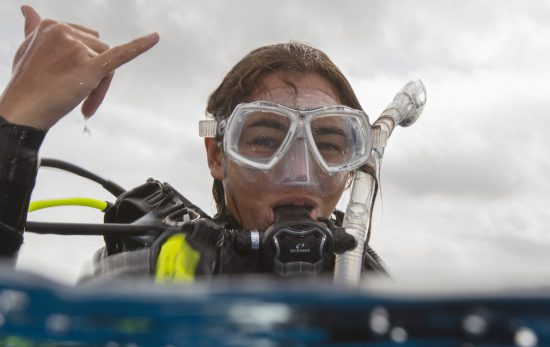If you’re new to scuba diving, here are some useful tips to help you get the most from boat diving. With just a small amount of preparation, you can make sure you get the most from your boat diving experiences!
Save yourself the trouble of going back to the dock or, worse, missing your dive. Make it a habit to check your gear at the dock before you get on the boat. Have you got your fins? Did you check that you rented the right size and right weight equipment from the dive shop? The fastest way to spoil a boat diving trip is to leave something essential onshore!
Try small mesh bags to keep all your scuba gear together. This is especially handy on crowded boats — you don’t want to get your stuff mixed up with someone else’s.
When you find a seat on the boat, take the time to remember to put your stuff under the seat: scuba diving mask, defogger, diving fins, scuba diving computer, wetsuits etc. all go under the seat. This may seem like common sense but never put weights on the seats where they can roll off and do major damage to someone’s bare tootsies!
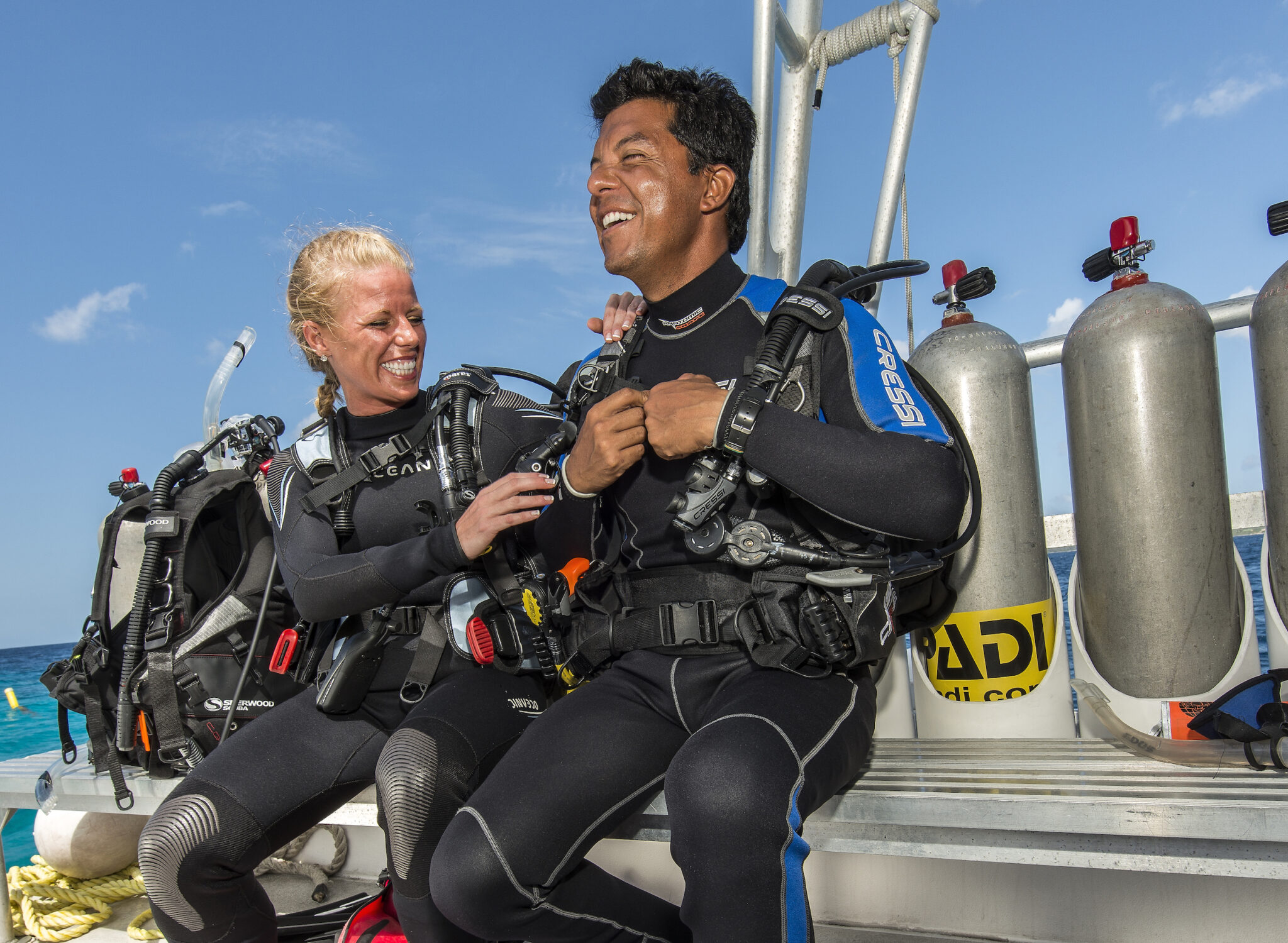
Remember that there are different rinse buckets on the dive boat for a reason. There are rinse buckets for masks, maybe one for cameras. Don’t carelessly toss fins or wetsuits into rinse buckets, or you will annoy a fellow diver! If you’re not sure what gear gets rinsed where, just ask the divemaster.
Don’t be the one diver that makes everyone else in the boat wait! When you are going boat diving, aim to get to the dive centre or boat early to sign in, get your equipment and make sure everything is okay. Best of all, you’ll have the chance to assemble your gear and avoid feeling rushed. Once at the dive site, you can be more leisurely and enjoy what you came to do.
Here’s a stress-saving tip: find out if the dive boat crew will assemble your gear for you. If so, great! You’ll save time having to assemble your stuff at the dock. It will also save you the trouble of trying to put your things together if the boat ride is rough. Most of all, you’ll have time to think about the dive at hand and not feel rushed. You’ll know ahead of time if you’re missing anything and can avoid any surprises once you’re out on the dive boat.
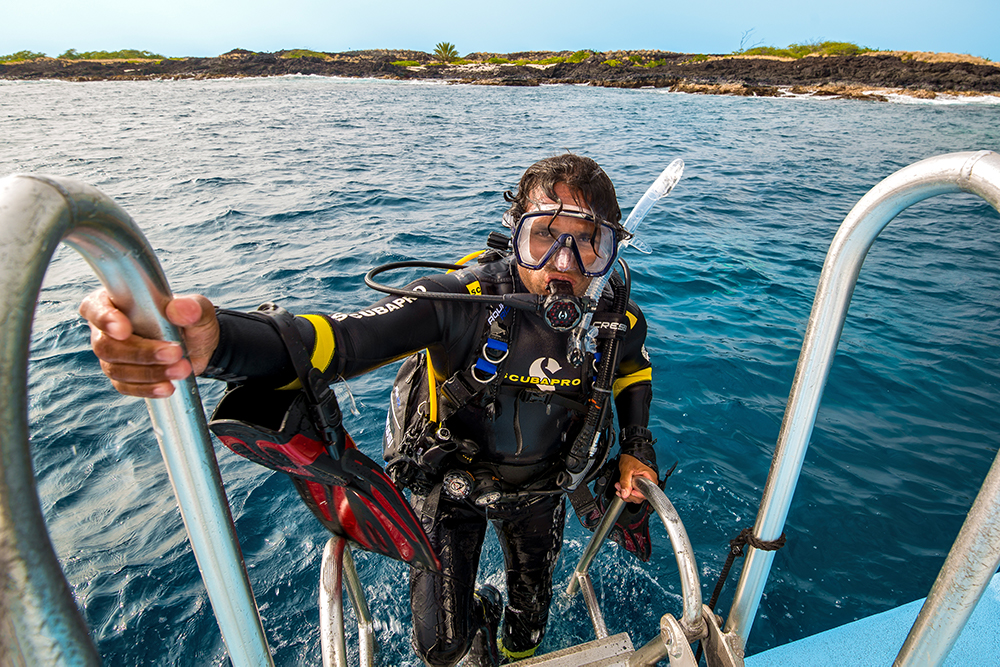
When boat diving, the divemaster will give you important information like how to enter the water, where you’ll be heading, the time of the dive and the maximum depths you’ll reach. This is the “Dive Briefing”, and you must listen to it! You’ll need to stay informed about special conditions at the site you may not have known about, like changing currents which can change your dive experience in unexpected ways.
Take special precautions near dive boat ladders especially when the water is rough. As much as you’d like to hang onto the ladder while waiting to get into the boat after the diver ahead of you, don’t do it. He could fall and land on top of you, and if by chance he’s got his BC and tank on, you could get hurt pretty badly.
Taking along a drybag on a boat diving trip is pretty important. During a diving interval, it can get cold, and it’s a big deal to me if you can put a towel or jacket around me. This is especially true in locations where large weather variations between dock and dive site are commonplace. Drybags are great for things like keys and money.
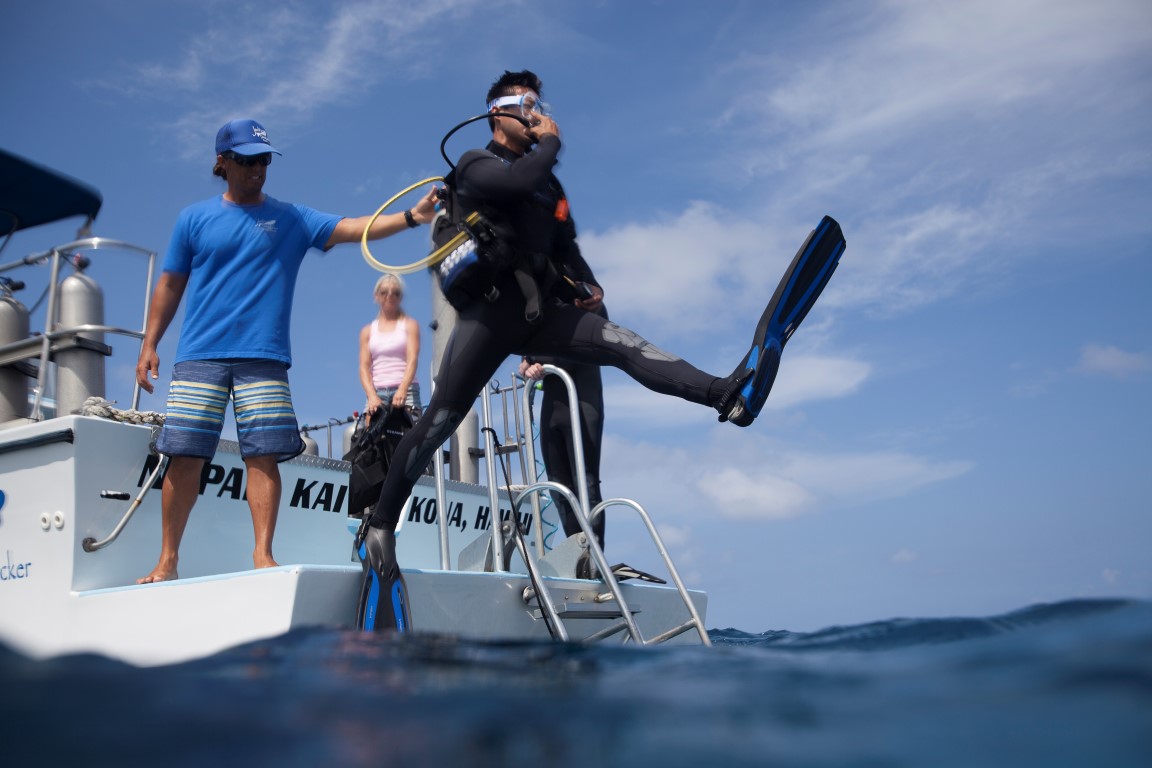
Sunscreen is something you really can’t do without. Sometimes when it’s cloudy, you may not think the rays are getting to you but they are. In sunny dive spots especially in tropical countries, the sun is especially and unexpectedly brutal, something some inexperienced divers have had to find out the hard way. Bring reef safe sunscreen always. Apply and re-apply between dives.
Learn more and build your confidence! Take the
PADI Boat Diver Specialty Course to learn more about boats and boat diving procedures.
Never swim back to your dive boat from underwater. To be safe, ascend a few yards from the boat and only swim towards it from the surface when you are sure that a crew member has seen you. Also make sure that the boat is stationary when approaching it.
Are you ready to learn more about boat diving? Sign up for the PADI Boat Diver Specialty Course and then check out potential destinations on PADI Travel!
Check out PADI Travel
This blog was originally written by Jackie Hutchings and published on the Diviac Magazine.



